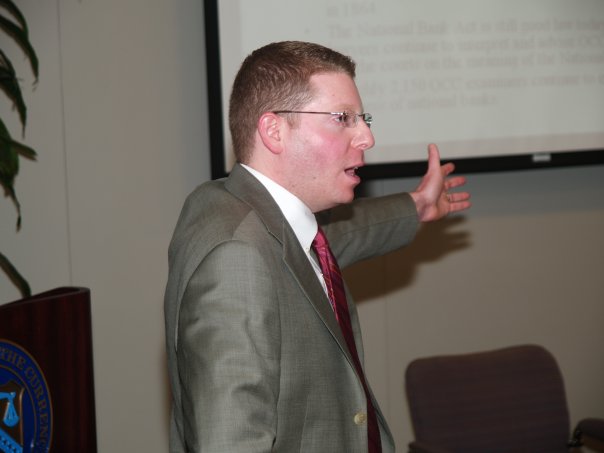THE CHICKEN OR THE EGG: CULTURE OR SYSTEM?
This proactive and deliberative approach resonated with Nora Cabo, an online MBA student and executive with a nonprofit organization. Her main takeaway was the importance of establishing compliance systems that foster deterrence and prevention. The value of such systems became readily apparent after her organization spun off from its parent recently. As a result, privacy considerations, such as knowing who can have access to what, have been amplified. “Our database contains a lot of sensitive information, so getting a sense of the separation of duties around handling that information is incredibly important. So too is separating our donor database from our accounting software, so we can have them as a kind of check against each other.”
Before taking Weber’s EMBA course on fraud, Jacqueline Manger had poured substantial resources into her compliance systems to combat worst case scenarios at the investment advisory firm she operates. In fact, she treats compliance as a value proposition. She boasts self-regulatory processes that are more robust, in her opinion, than firms that are 5-10 larger than hers. Manger admits that her approach requires more paperwork, but adds that she can supply “every piece of paper the SEC needs within 24-48 hours,” which can give her the benefit of the doubt in a dispute.
That said, Weber’s course took her appreciation for creating a compliance mindset to another level. “When I think about fraud prevention and control, if you’re going to set up a program, inspire your organization to prevent internal fraud and promote compliance culture regardless of your regulatory structure.” Manger also doesn’t buy that compliance is the exclusive purview of just the legal and finance departments either. She suggests rotating different departments through compliance or creating compliance ambassadors in each department. “Having people who are not exactly what you think of involved in compliance is also very helpful as a check.”
PARTNERSHIP BETWEEN WEBER AND MADOFF STARTED WITH A SIMPLE EMAIL
Bernie Madoff could’ve easily have been checked when he led his namesake investment securities firm. Like most Wall Street operations, he was audited — though his selection of a two-person firm should’ve raised red flags among investors. He was inspected and examined by the SEC five times. Of course, he pitched his knowledge of the securities market to financially-savvy banks, public accounting firms, and individual investors who could’ve easily dug deeper. Alas, there were always whispers in Upper East Side gatherings and Wall Street corridors that Madoff’s numbers couldn’t possibly add up. Still, Madoff was well-liked and well-connected, even once serving as the non-executive chairman of NASDAQ. It was unimaginable that he could be something other than what he appeared to be.
Yet, it was this very failure of imagination that fueled Madoff’s ongoing deception. No one dared ask the hard questions or verify his assertions. That even included the SEC, observes Weber, who cites Ronald Reagan’s classic “Trust, but verify” axiom in relation to Madoff. “They would come and do an inspection. Bernie would be the first to tell you that he had a lot of anxiety and stress because he felt at any moment that he would get arrested and thrown in jail. He would constantly be surprised because nothing would happen. They would never do the DVs (Direct Verifications) that would have caught him a lot earlier.”
Ironically, Weber had directed all investigations at the SEC’s Office of Inspector General, and first reported misconduct in the SEC’s investigation of Madoff. Despite being on opposite sides of the law, Weber and Madoff have developed a sort of kinship. “We have a lot in common, strange as that might sound,” Weber admits. “We share religion. We grew up in the same neighborhood. I’m around the same age as his boys when they were alive.”
Madoff hasn’t been an easy man to reach since being incarcerated. The Bureau of Prisons, for one, restricts his contact with the outside world by pre-approving anyone he emails in advance. After he began teaching at the University of Maryland in 2014, Weber received what he describes as an “extraordinary email,” an automated request to his school account to correspond from none other than “Inmate Madoff, Bernard L.” This sparked a long and regular string of communiqués between the two. “He was obviously keeping track of what I was doing,” Weber jokes.
MADOFF CHOOSES THE TEXTBOOK USED BY MBAs
Initially, Weber planned to carve out a guest teaching spot for Madoff, who agreed to take on the role. However, Weber encountered concerns about security with videotaping his lectures. This was then followed by nearly two years of foot-dragging by the Bureau of Prisons, potentially out of fear that Madoff might somehow profit from the venture. Despite this, Weber still found a way to get him involved.
To start, Madoff actually picked out the textbook used by the online MBA class. How did Weber get that one through? Simple: He enlisted the help of the textbook publishers, who sent review editions of selected books to Madoff. After reading all of the books, he settled on the 4th edition of Joe Wells’ Principles of Fraud Examination from Wiley Publishing. The choice didn’t surprise Weber, who notes that Wells is a former FBI agent, CPA, PhD, and a past chairman of the Association of Certified Fraud Examiners.
Madoff also acts as a sounding board for students in Weber’s MBA fraud classes. Sometimes, online students will pose questions to Madoff, who’ll email back answers for Weber to share. For executive MBAs, Madoff will compose an email for incoming students and Weber will make a photocopy of it for each of the students. Earlier this year, Weber’s online students were discussing the concept of power and how it can be wielded over others. At the same time, a newly-released book claimed that Madoff had cornered the market for hot chocolate, considered the most valuable commodity at his prison. Seizing on this, students inquired whether the news was true and (if so) how it related to power. After vehemently denying the book’s claims, he went into depth about the various forms of power that can be used to dictate or influence behavior in an organization
“So we had this whole conversation about these various concepts of power and I was able to share it with the students,” Weber says. “Bernie has a lot of time on his hand to think about these things. To have someone like that provide insights about ethics and fraud is extraordinary. It’s extraordinary for me and I imagine it is extraordinary for the students.”
NEXT PAGE: Bernie Madoff’s exclusive message to Poets&Quants readers.







Questions about this article? Email us or leave a comment below.